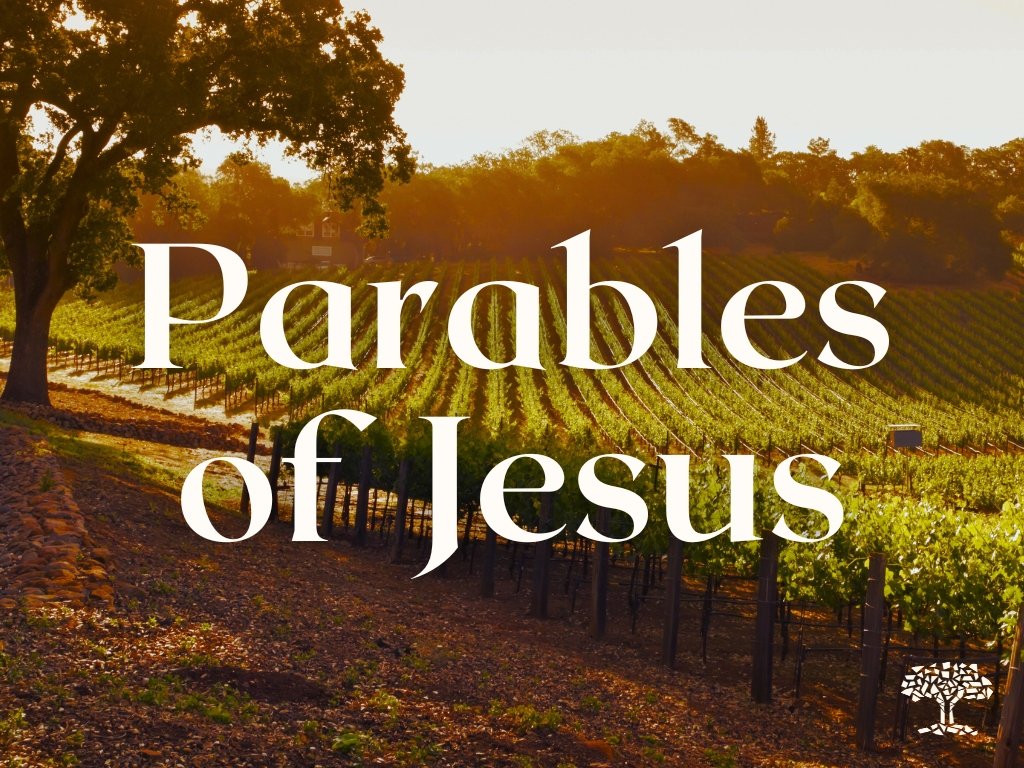Parables of Jesus
In 2010, Sarah and I were on a weekend trip to New York City and decided to visit Tim Keller’s church while we were there. We had enjoyed reading things he had written but had never seen him preach.
At the time, Keller would preach at two of the three Redeemer campuses every Sunday without pre-announcing which two. That meant we had a 67% chance of hearing him preach; we hoped we chose the right campus!
A tall guy gets up to preach, and about five minutes in, I said, “Bummer. We didn’t get Tim Keller.” This preacher’s demeanor just wasn’t all that impressive – not flashy, not commanding, not ultra-charismatic. This couldn’t be Tim Keller.
But I was taking notes, and about 30 minutes in, when I looked back at the notes I had written and how it was all tying together, I said, “This is incredible!” So I turned to the person next to me: “Excuse me. Who is this preacher?” She seemed almost disgusted at my ignorance: “That’s Tim Keller!”
I was not at all thinking of being a pastor at the time, but that experience ended up shaping me profoundly. At the time, my picture of a great preacher was someone forceful, energetic, dynamic, clever. But the more I listened to Tim Keller after that, I continued to gain such an appreciation for his clarity, his humility, and his evenhanded applications of God’s Word.
In the days since Keller passed away last week, many have written heartfelt tributes to this man who preached faithfully, led institutions that will outlive him, avoided scandal, and by all accounts practiced the grace that he preached. For me personally, Keller has been one of my top-three most significant ministry influences, and the main thing I’ve taken from him is what Trevin Wax would call his “multi-directional” preaching and writing.
To be a “multidirectional” leader involves recognizing that threats come from multiple directions and being ready to defend against those threats simultaneously. For example: Yes, legalism is a danger, but so is licentiousness. Yes, ultra-progressive political ideology is a danger, but so are some conservative responses to that ideology. Yes, under-prioritization of the nuclear family is a danger, but so is idolization of the nuclear family. Sometimes, by (rightly) seeking to avoid one ditch, we find ourselves hurtling toward another ditch without realizing it.
So when our staff and elders playfully tease me for the frequency with which I tend to frame issues in terms of walking a path between “two ditches,” that instinct comes from Keller (and from DA Carson, whose like-mindedness on these matters led them to found The Gospel Coalition together). I will forever be indebted to Tim Keller for his impact on my life and ministry.
During my past seven years at North Sub, I have aspired to instill that sort of theological reasoning in the life of our congregation. Through sermon applications and small group discussion questions, I’ve often tried to show where there are two ditches to avoid, and how the way of faithfulness is to grab hold of paradoxical truths at two extremes and hang on to both… instead of only clinging to one and thereby stepping squarely into trouble. Not every issue is a both/and – sometimes scripture clearly paints an either/or! – but when both/ands exist, it’s a shame for Christians to bicker as though it’s an either/or.
One way to instill this sort of moral and theological reasoning is to work through the parables of Jesus. So many of his parables serve as grids through which we can see the world. In fact, one of Tim Keller’s best-known teachings was on the Parable of the Two Sons, in which Keller showed that both the younger brother (a hedonist) and the older brother (a moralist) were in danger of missing out on the feast that represents eternal life. There are two “ditches” that seem opposite to each other but in fact both must be repented of in order to experience the fullness of joyful celebration in relationship with God the Father.
For that reason, this summer we will be preaching through fourteen parables of Jesus. Each of these parables reveals something about God, about us, and about the nature of His kingdom. They do so in a way that cultivates theological reasoning, challenging us on whether we’ve really heard God’s message and applied it to our lives.
Our kids downstairs will be working through these parables as well, so we can talk to them after service about what we all learned together! We hope this series is practical and easy to invite a friend into.
Sermon Schedule:
6/4 - The Soils, Mark 4:1-20
6/11 - The Workers in the Vineyard, Matthew 20:1-16
6/18 - The Two Sons, Luke 15:11-32
6/25 - The Weeds Among the Wheat, Matthew 13:24-43
7/2 - The Talents, Matthew 25:14-30
7/9 - The Unjust Judge, Luke 18:1-8
7/16 - The Rich Fool, Luke 12:13-21
7/23 - The Sheep and the Goats, Matthew 25:31-46
7/30 - The Lost Sheep and the Lost Coin, Luke 15:3-10
8/6 - The Shrewd Manager, Luke 16:1-13
8/13 - The Barren Fig Tree, Luke 13:6-9
8/20 - The Good Samaritan, Luke 10:25-27
8/27 - The Wise and Foolish Builders
9/3 - The Unmerciful Servant
Resources Informing this Series:
Poet and Peasant (Kenneth Bailey)
Jesus Through Middle Eastern Eyes (Kenneth Bailey)
Stories with Intent: A Comprehensive Guide to the Parables of Jesus (Klyne Snodgrass)
The Parables of Jesus (James Montgomery Boice)

